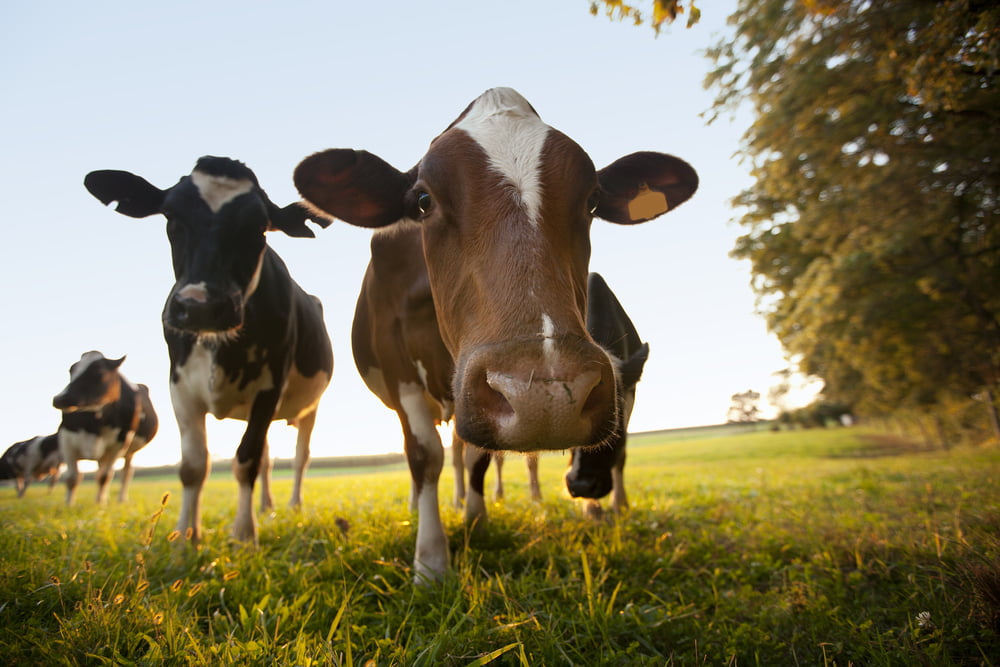

Cattle Care
Veterinary Care to Maximize Cattle Production
Sullivan Veterinary Clinic understands that caring for your beef cattle herd can be both rewarding and challenging. Our support for cattle ranchers focuses on quality customer service, including herd management, wellness care, surgery, reproductive services, farm calls, and after-hours emergency care. We also perform cosmetic surgical procedures, such as dehorning.
Your successful beef operation depends upon a healthy, thriving, productive herd, and we work with you to support your production goals. In addition, we assist our large animal clients by offering resources for accessing current knowledge about herd management and advanced veterinary practices.
This section contains some basic information about setting up a cattle operation.
Shelter and Equipment
While cattle require minimum shelter, weaned calves and cows calving need at least an open shed. You may need chutes for efficient maintenance and care, used when worming, dehorning, palpitating, or vaccinating. Chute size and style will vary based on your needs and financial plan.
Proper feeding and watering equipment is a must. You may need feed troughs for specific feed and supplements and you will always need an adequate, reliable water source.
Feed
Cattle require a balance of protein, energy, water, minerals, and vitamins for optimal health and production, called a ration. Feed is separated into two classes:
Roughages—Feeds high in fiber and low in total digestible nutrients, such as grazable pasture, alfalfa, grass hay, and straws.
Concentrates—Feeds low in fiber and high in digestible nutrients, such as grains, cottonseed meal, wheat bran, and soybean meal.
In general, pasture rotation, hay, and concentrates will depend upon your specific operation.
Wellness Care and Herd Management
Veterinary wellness care and planning is the easiest and cheapest method of disease and parasite control. We recommend the following simple steps to begin your wellness care regime:
- Dehorn calves of horned breeds—Removing horns is safer for you, the animal, and the other animals in your herd.
- Castrate male calves—Castration is necessary to produce beef that meets American market requirements.
- Wean calves—Separating calves completely from their mothers promote a cessation of milk production in cows and restores the heat cycle.
- Vaccinations—Creating a vaccination schedule that meets the needs of your herd will prevent costly diseases and promote healthy reproduction.

In this part of the country, Sullivan Veterinary Clinic generally recommends the following:
Calves:
8-Way clostridial vaccine at 3-6 months of age, with a booster in 3-4 weeks
Vira Shield 6 + VL5 at 3-6 months with a booster in 3-4 weeks
Adult Cows and Bulls:
8-Way clostridial vaccine annually
Vira Shield 6 + VL5 annually
Optional:
Foot rot vaccine and anaplasmosis vaccine, both given annually.
Contact us with any questions regarding the care of your cattle herd.


 Clinic Hours & Emergency Info:
Clinic Hours & Emergency Info: